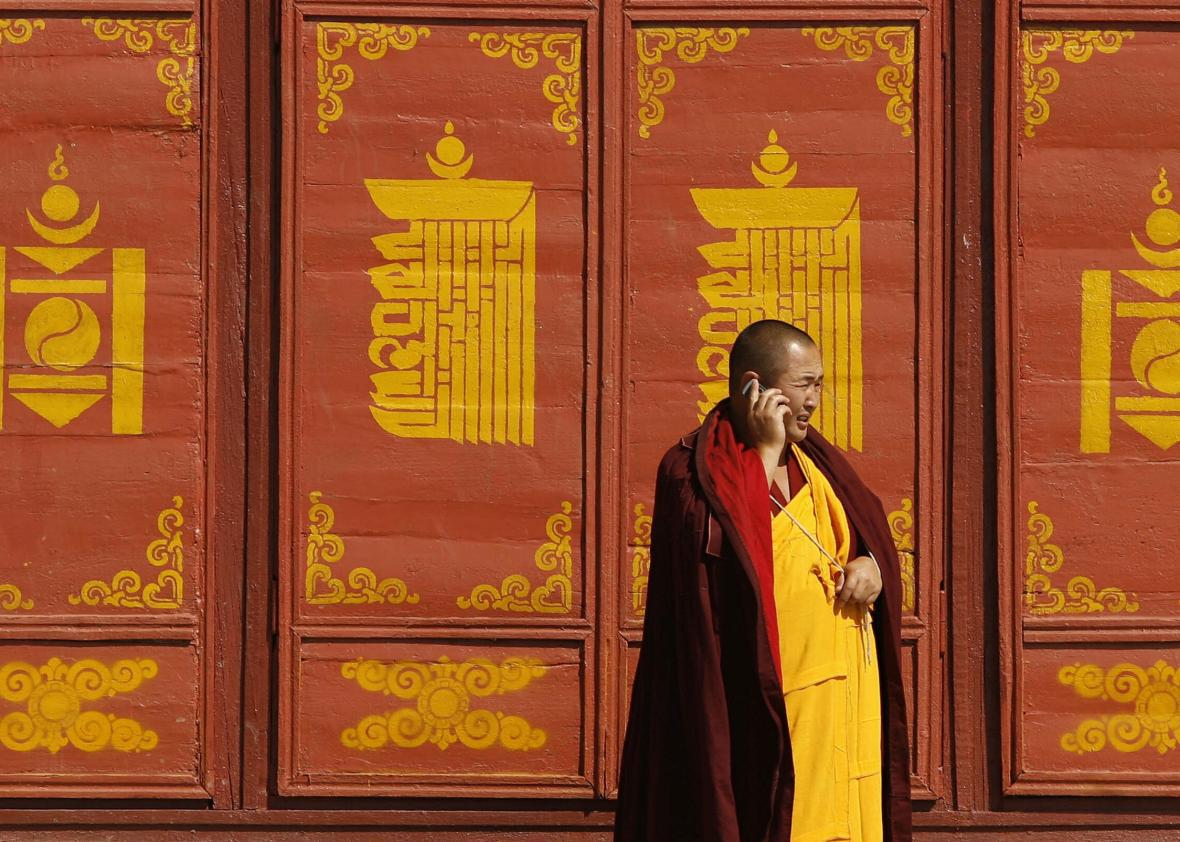Whether you’re coordinating a delivery of medical supplies to a remote refugee camp, showing up at a prearranged rendezvous with your star-crossed lover, or just waiting for that pad Thai you ordered to arrive, communicating accurate location information is critical. But in many places—in the middle of a wilderness area, for instance, or the twisty maze-like backstreets of a North African medina—street addresses are either nonexistent or just not particularly useful.
The British startup what3words has come up with a new simple way to describe location anywhere in the world. The company’s algorithm has divided the surface of the world into 3 meter-by-3 meter (a little less than 10 feet) squares. “Small enough to be useful, but large enough so that it doesn’t give you an unfeasible number,” as the company’s chief marketing officer, Giles Rhys Jones, puts it. Each of these 57 trillion squares has been assigned a three-word address. So the table at a Washington, D.C., coffee shop where I’m writing this article is located in a square called “basis.laws.slice.” Slate’s new Brooklyn, New York, offices are located at “chairs.armed.cards.” The center of the Eiffel Tower is “graphics.dad.inched.” The system is currently available in 10 languages with more to come. (These addresses aren’t translations between the available languages. In Swahili, my table is at “kaskazini.ncha.mchanga,” which translates to “north.tip.sand.”)
The addresses assigned by the algorithm are permanent, so you don’t need Wi-Fi access to use it, though presumably you might need it to tell other people where you are. Homophones have been removed from the list of words, as have “offensive words,” which is probably wise given what’s happened with some other mapping programs. Longer, more complicated words tend to be located in more remote areas and in the ocean.
The idea came about thanks to CEO Chris Sheldrick’s former career organizing large outdoor concerts, when he found that musicians, vendors, and technical crews were constantly getting lost. At one point a band scheduled to play an outdoor show on a hillside in Rome did its soundcheck on the wrong hillside.
One solution to problems like these is just to use GPS coordinates, but as Jones says, “People aren’t generally wired to remember 18 digits.” Just a small error in one of the digits of a GPS location could send you disastrously off course. What3words, by contrast, is programmed so that similar words are spread far apart. So if I wanted to tell a friend to meet me here for coffee but accidentally wrote “slices” instead of “slice” they’d get a spot in Parsons, Kansas—an obvious error—rather than a more plausible one a few blocks away.
The system could be particularly useful in developing countries where addressing can be inconsistent. According to a report by the Global Address Data Association cited on What3Words’ website, only about 50 to 70 countries “have postal code or address databases which are kept reasonably current.” The problem has only been made more acute with record numbers of displaced people around the world—about one out of 113, according to the most recent U.N. statistics. What3words has already been used to deliver packages in Brazil’s Favelas and by the United Nations in disaster reporting efforts.
Most recently, the company signed a partnership with the national post office of Mongolia, which will begin referring to locations by their three-word addresses rather than street addresses. The system makes a lot of sense for Mongolia, a largely rural country with a significant nomadic (but increasingly wired) population. Jones says the company is also working with e-commerce companies to add three-word addresses to their checkout pages. The full rollout will come once the Mongolian-language version of what3words is complete.
Of course, location confusion isn’t just a “third-world problem.” Jones notes that the United Kingdom is “one of the best-addressed countries in the world, but if you live in many rural areas it’s still, like, ‘oh sorry, wrong farmhouse. You want the next one over.’ ” Three-word locations have been used to coordinate first aid at Britain’s Glastonbury festival, the world’s largest outdoor music event, and by ski patrol in Lake Tahoe. The system and a mapping app are free for users, though the company charges for access to its API and a development kit.
The system does have a few limitations—like vertical space. If you were trying to find an office in a Tokyo skyscraper or a family living in Caracas’ 45-story squatter community, the Tower of David, what3words’ grid wouldn’t be all that useful. Jones says that for non-ground-floor locations, “We can be used as an addition to a more traditional address, to add a level of specificity.” It also relies on the accuracy of your phone’s GPS system—mine jumped around a few times before it settled on basis.laws.slice. This is, admittedly, a problem with basically every GPS-reliant app.
The company hopes to one day have its system integrated into major mapping systems like Google Maps and to have businesses listing their three word locations along with street addresses. “We want to become a globally accepted standard for communicating location, so ‘word.word.word’ is recognized by your device and is recognized on a business card and everyone understands that you’re talking about location when you see that,” says Jones.
By then you should be well on your way to exploring all the world’s 57 trillion fascinating places.
